18 Feb 2022
Changing the Overwork Culture
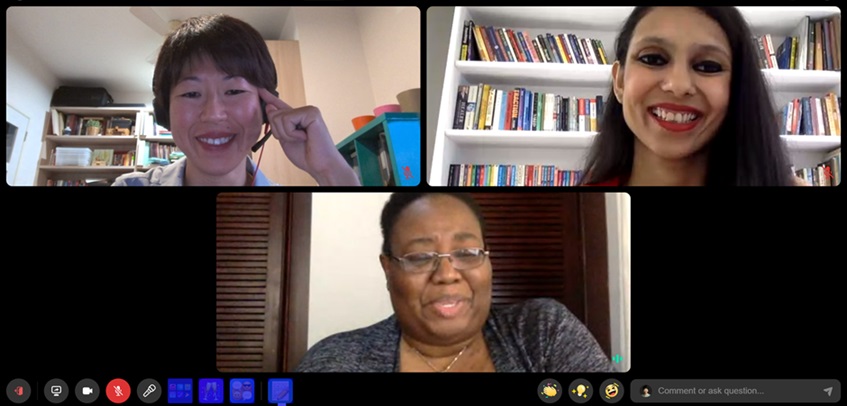
Ms Zheng Wanshi (top left), Group Chief Strategy and Planning Officer of Frasers Property Limited, shares her views during a panel discussion on “Changing the Overwork Culture” that explores mental health and wellness in the workplace, especially with new pressures from the pandemic. This was chaired by Ms Preeyam Budhia (top right), President, Business Development, Patton Group of Companies, India, with the other speaker Ms Betty Enyo Kumahor, Founder and Managing Partner, The Cobalt Partners, Ghana, listens on.
In the past, Japan’s male professionals were known to suffer from high suicide numbers through overworking – though this is now truly a global and gender-free issue. Termed ‘karoshi’ or ‘death by overwork’ in Japanese, the World Health Organization (WHO) now believes a third of all deaths are due to overwork, and the pandemic has only increased this overall risk.
In a panel discussion organised by Horasis Asia at the tail-end of last year, Ms. Zheng Wanshi, Group Chief Strategy and Planning Officer of Frasers Property Limited, shared her views on “Changing the Overwork Culture”, with an exploration of mental health and wellness in the workplace, especially with added stress from the defining features of this pandemic including regular lockdowns and social restrictions. Frasers Property’s response to overworking and its support for employees’ health and wellness was also addressed.
To bring greater visibility and awareness on this pertinent issue, we are making available the extract of the panel discussion. Read on to learn more about how leaders, teams and companies can combat this overwork culture, and understand steps taken by Frasers Property to manage employees’ mental health.
----------------------
Q&A Segment:
Q1) Why can’t we ignore the issue of overwork?
Overwork is the most cited reason for burnout and decreased well-being. Even pre-pandemic, the WHO estimates a third of all deaths are due to overwork. In the report, working more than 55 hours per week was associated with a 35% higher risk of stroke and a 17% higher risk of dying from heart disease, compared to working 35 to 40 hours per week.
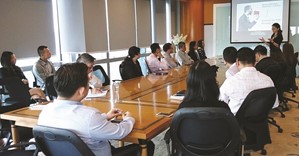
The overwork situation has affected the mental health of workers, leading to more employees leaving their jobs citing mental health reasons. The average working hours per week across countries such as Singapore, Australia, and Thailand are around 40 to 50 hours, which is higher than normal. The World Economic Forum estimates that the global economy could lose up to US$16T by 2030, if we do not increase our efforts to tackle mental health problems.
In particular, the tourism industry has been hard-hit by Covid-19, and experienced labour shortages resulting from border closures. This affected movement of international labour, and consequently lowered demand for tourism. Instability in the retail and hospitality sector is hurting retention, with workers permanently leaving the sector, constricting labour supply over the mid to long-term.
Q2) How does Covid-19 contribute to worsening overwork globally?
Now, time previously spent commuting to the office has instead lengthened workdays. People all over the world are in significantly more virtual meetings, taking more ad-hoc calls and managing more incoming chats compared to before the pandemic. For Singapore in particular, the “always-on” culture can cause anxiety, as people may feel that they should drop everything to attend to work matters, regardless of importance, outside of working hours. Employees may also feel extra pressure to demonstrate how hardworking they are with the widespread layoffs and economic downturn looming in the background.
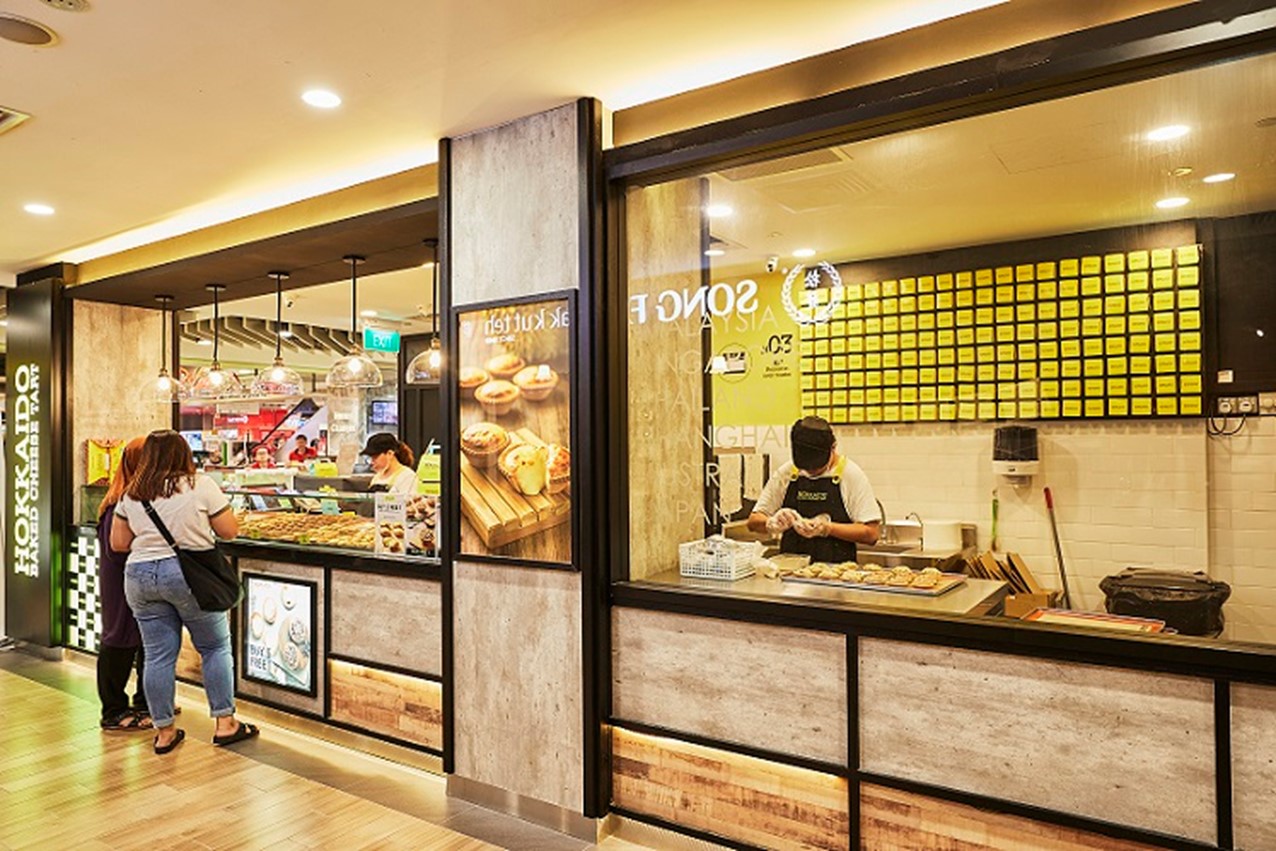
Frasers Property strives to actively manage workplace stress by varying our approach for both remote and frontline staff, which can differ for both types of workers.
For remote workers, a large part of increased burnout levels is attributed to the lack of separation between work duties and personal obligations. This leads to longer working hours and negative impact on their well-being physically and mentally.
For frontline workers, lockdowns and border closures from the Covid-19 pandemic has strained resources and created labour shortages, especially in the retail and hospitality sectors. Unemployment benefits, Covid-19 fears and delayed vaccine rollouts have also kept workers at home. As a result, remaining permanent staff are working longer hours and taking on multiple roles as companies utilise overtime to solve worker shortages.
Q3) What is the resultant impact on employees’ work-life balance and mental health?
With the additional strain imposed on both remote and frontline workers caused by the pandemic, managers have had to quickly evolve their approach in the management of their teams to provide sufficient support and empathy to manage the constantly shifting circumstances and workload. This includes ensuring sufficient mental and social support from lesser in-person socialisation, and providing adequate support for remote working conditions.
Leaders need to treat mental health as an organisational priority, in order for employees to have higher job satisfaction and for employers to see increased performances. While companies have increased investment in employee mental health, a contrast still exists between what employees are provided versus the resources that they desire.
Q4) What are the steps that can be taken by organisations to manage staff’s mental health?
It is important to actively listen and continue checking in with employees, especially during these challenging times. Companies can build in policies and employee welfare benefits specific to mental health concerns. This can be done by building in flexibility for work-life balance into policies. These include ensuring annual leave are taken by employees regularly throughout the year.
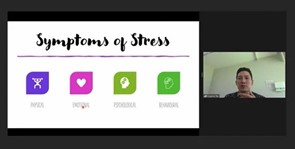
Moreover, mental health care packages and insurance coverage for mental health conditions are often not included as a standard in company policies. The ability to access counselling and other related services should be made no more restrictive than insurance coverage for other medical conditions.
Critically, companies must take active steps towards culture change. When mental health is prioritised and company leaders advocate for mental wellness at work, it helps to create an empowered network of “mental health champions”. This can be done by building a culture of connection through check-ins, by having regular personal conversations with colleagues. Organising employee engagement initiatives around mental wellness is another approach.
Needless to say, an environment where people are empowered to ask for what they need and where honest conversations are judgement-free is beneficial. It is also necessary for leaders to role model healthy behaviours, for instance, actively sharing with their teams how they prioritise self-care and set boundaries between work and personal time.
Q5) What has Frasers Property done to address the issue of “Overwork”?
In times of change, our shared purpose as a company and focus on nurturing a positive and constructive culture are even more important. The real estate business is fundamentally about the built environment and its relationship with people’s interactions. Frasers Property has embarked on a purpose-led journey committed to – inspiring experiences, creating places for good. We want to be a force for good in business, society, and the environment. That is why we are committed to evidencing our intent across environment, customer centricity and resilience.
Like many companies, we recognise employees as our most valuable resource. For us, beyond the health, safety and wellness of our employees, we also focus on workplace design, leadership and communications. To achieve our objectives, we have set some health and wellbeing goals:
- To transform our workplace by building a wellness culture that positively engages employees;
- To create awareness of health management, support mental wellness and foster a connected workforce; and
- To create a safe and inclusive working environment
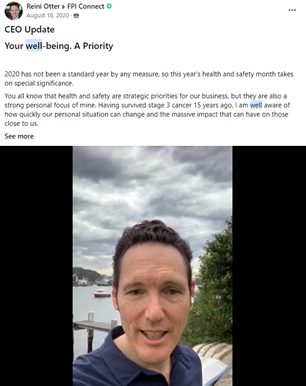
Walking the talk and leading the way to a focus on wellness during the 2020 Health & Safety Month starts with our leaders. Reini Otter, CEO of Frasers Property Industrial shares in a video why this issue is a pertinent one for him.
We are concerned about the greater emotional and cognitive fatigue experienced by everyone during this pandemic. In response, we have rolled out various measures to take care of our employees and their overall wellbeing:
- With telecommuting that has become a norm, we have enabled our flexible working policy and embraced hybrid work arrangements.
- Employees are encouraged to check in regularly with one another and share their own health and wellness activities through internal communication channels such as Workplace by Facebook. For instance, we organise a Health & Safety Month annually, and our campaign internally was focused on ‘Connecting Lives’.
- Tips and best practices are regularly shared on managing teams remotely. We also celebrate World Health Day and World Mental Health Day to further highlight the importance of self-care.
- With the onset of the pandemic, we launched an Employee Assistance Programme in Singapore, Australia and the United Kingdom to assist our employees with personal or work-related issues.
- Mental resilience and mental health workshops are also organised by our Learning Academy team from time to time.
- We also celebrate World Health Day and World Mental Health Day where we provide our employees with articles, self-care tips, and leaders supporting the need to look after mental health.
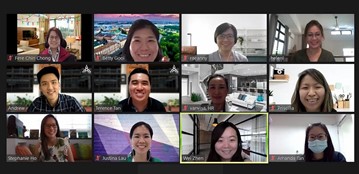
Frasers Property conducts training sessions in emotional first aid for managers on what can do if they see signs of emotional distress or substance abuse. Employee assistance programmes are also in place for employees to seek complimentary counselling services while online wellness activities and courses are also offered from time to time to provide employees with tips on taking charge of their well-being.
Further initiatives have also been taken to understand and assess our employees’ mental health. The views and concerns of our employees views and important – regular feedback mechanisms such as media and social monitoring or culture and pulse surveys are deployed. We also had our group-wide culture survey in September 2021, to understand employees’ sentiments on working at Frasers Property. Moreover, our managers are also trained in emotional first aid, on what to do if they see signs of emotional distress or substance abuse.
It is gratifying to see that our different business units are also prioritising personal wellbeing and mental wellness. Some of the initiatives include:
- Frasers Property United Kingdom celebrated Mental Health Awareness Week in May 2021, with a series of a series of tenant engagement activities at their business parks to raise awareness for mental health and inspire positive action for well-being in the workplace.
- Frasers Property Industrial launched Australia’s first industry led National Mental and Wellbeing strategy in May 2021. It offered a unified strategy to approaching mental health and wellbeing designed across the road transport, warehousing, and logistics industries.
- Frasers Property Retail, in partnership with Care Corner Singapore, ran a community campaign for all Singapore-based employees called Caring for Mental Wellness & Beyond. Staff were encouraged to get active and exercise outdoors. For every kilometre an employee clocked from walking, running or cycling, $1 was donated to Care Corner Singapore’s Mental Health and Counselling Services group. In total, more than $20,000 was raised for this cause.
- In the UK, our Frasers Hospitality team participated in the Burnt Chef Project, a non-profit social enterprise that aims to reduce the stigma of mental illness in the hospitality industry. Out support included redesigning menus to allow guests to donate directly to the Project with special items, supporting employee-led fundraisers as well as a donate button on all relevant websites.
As we move forward and adapt to a new normal, it is necessary for us to continuously address issues surrounding overwork culture and mental health concerns as they emerge and evolve. This will require companies to stay close and listen to their employees, while balancing a culture of care with delivery against business goals and outcomes.
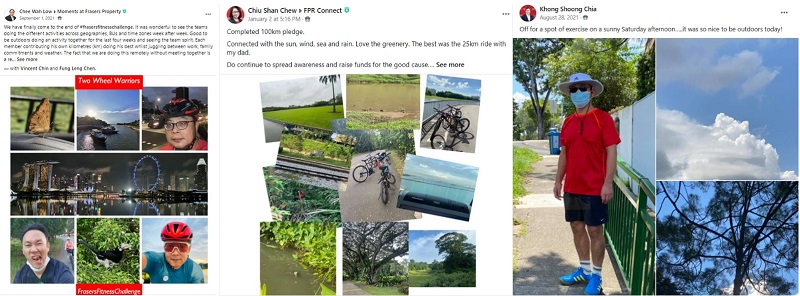
Leaders and employees from Singapore sharing their participation in Frasers Property's Fitness Challenge on Workplace, an internal sharing platform for employees. Low Chee Wah, CEO of Frasers Property Retail (left), Chew Chiu Shan, CFO of Frasers Property Singapore (middle), and Chia Khong Shoong, Group Chief Commercial Officer (right), are among the management of Frasers Property who demonstrate to employees the importance of self-care and walk the talk by taking time off to exercise.
